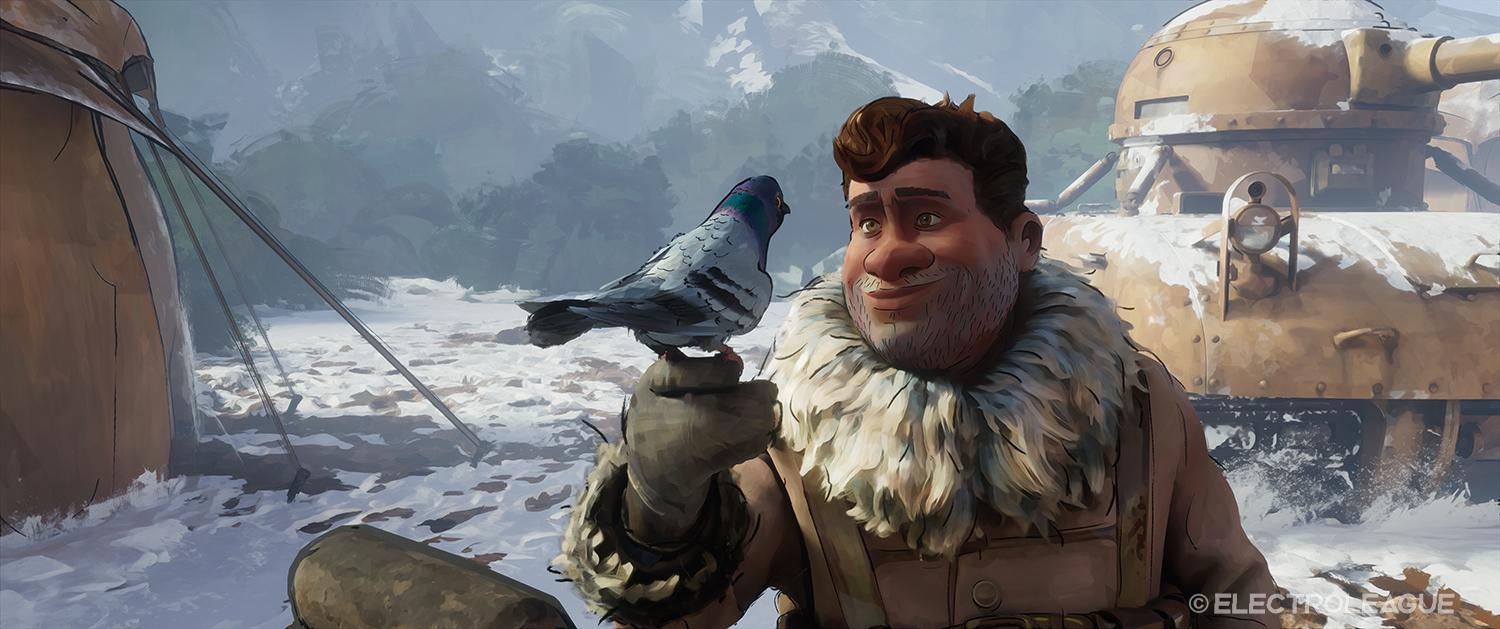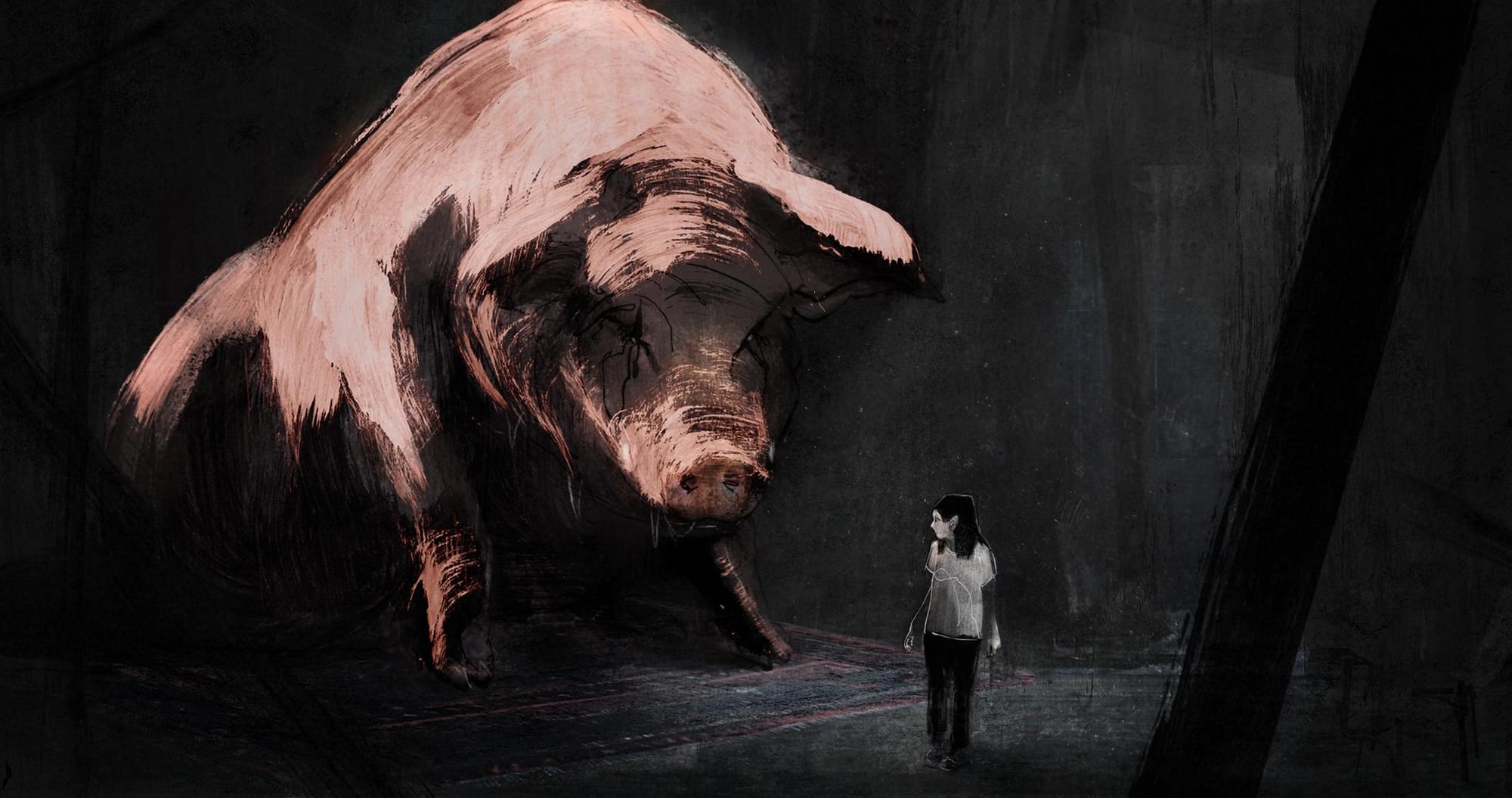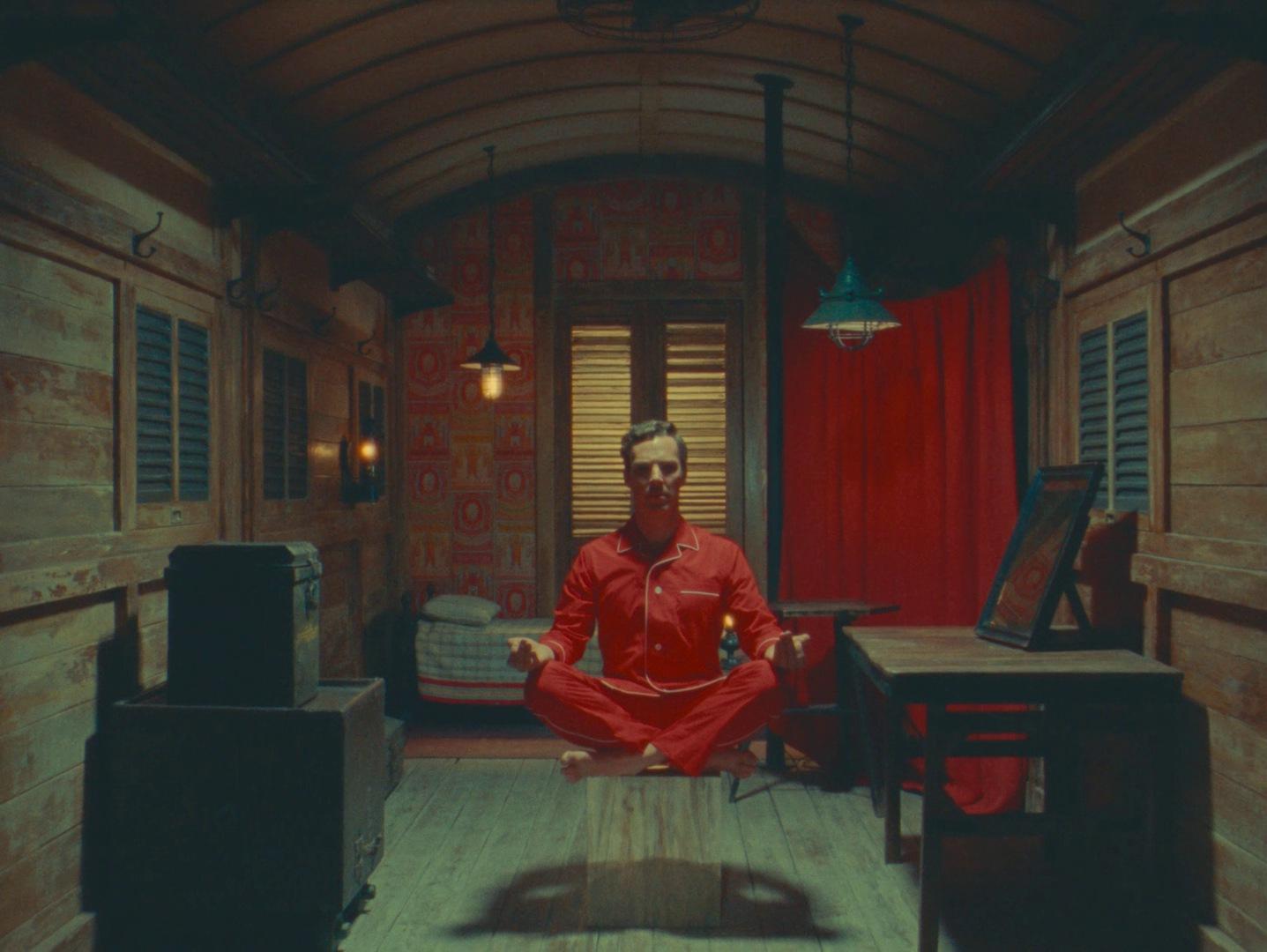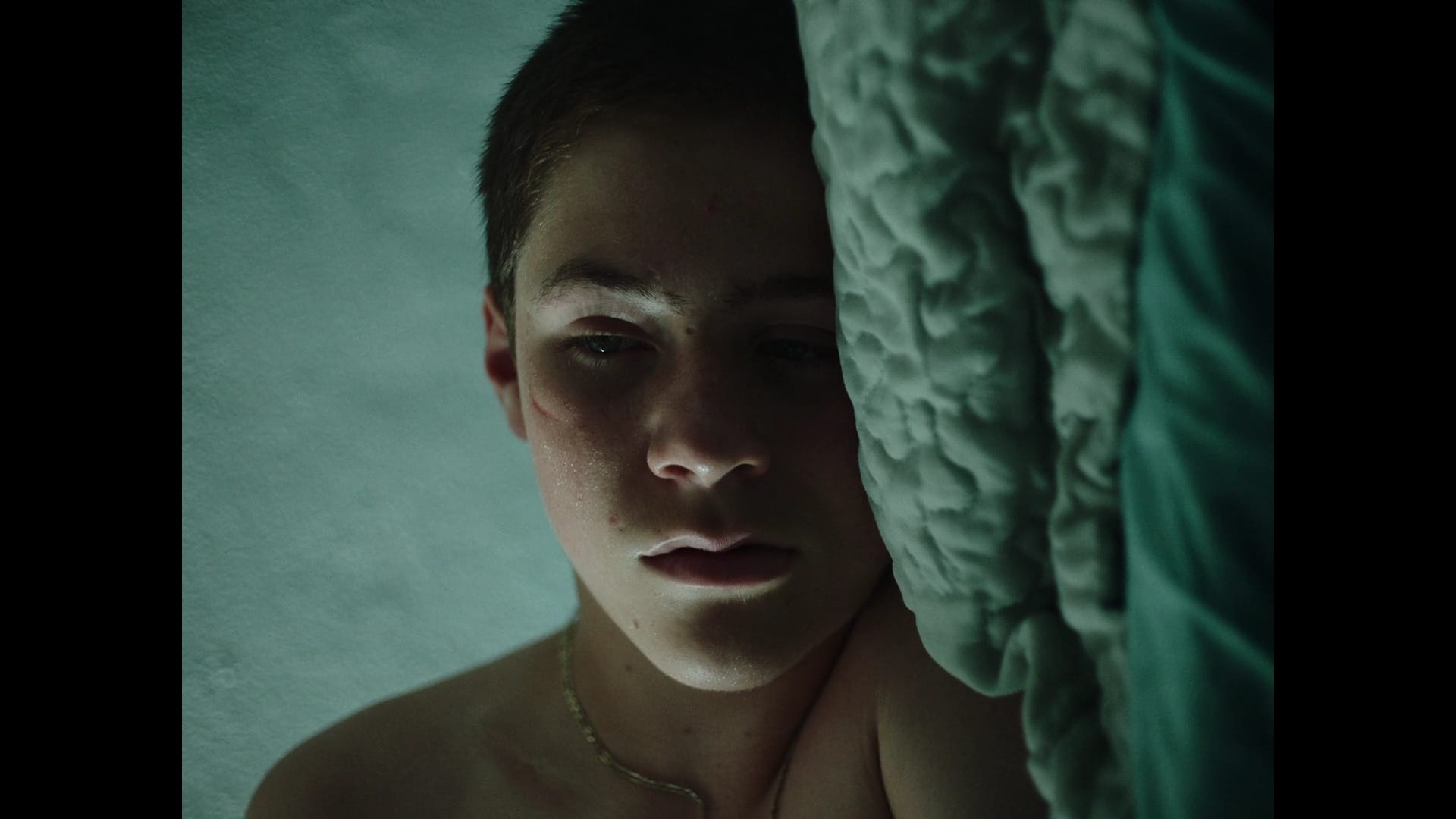What to Watch: Oscar shorts
Plus: Ty talks Oscar for worthy causes and The New Yorker gets a new movie critic.

Note to readers: I’m hosting two conversations next week, one in person and one online, to talk about this year’s Academy Awards – who will win, who should; the usual stuff. Both are for good causes: Wednesday, March 6 at 6 p.m. I’ll be taking the stage at the West Newton Cinema, where I’m part of a group that is trying to forestall the theater from falling to the wrecking ball this coming August. Attendance is free and you can register here. (Further information is at the West Newton Cinema Foundation's website – feel free to donate!) And on Thursday, March 7, at 7 p.m., I’ll be giving a virtual fundraising chat for English for New Bostonians, an excellent non-profit organization that provides new immigrants with ESL classes, business assistance, and other help. (Their mission statement is here.) Tickets are $50 and all proceeds go to ENB; you can register here.

It’s been pleasing to me, both professionally and personally, to see Justin Chang step from the Los Angeles Times into Anthony Lane’s shoes at the New Yorker – anyone who hangs out with movie critics online or at film festivals knows that Justin’s one of the sweetest guys in the business, despite a penchant for truly awful puns that none of his friends has yet been able to talk him out of. Justin also runs a tight ship as Chair of the National Society of Film Critics, but, most importantly, he’s a critic of rare insight, erudition, clarity, wit, and heart – qualities that don’t often come together in this business. I don’t want to sound catty (well, maybe a little), but as exhilarating as Lane is as a pure slinger of language, and as uproarious as his prose can sometimes be – his 2005 review of “Star Wars Episode III—Revenge of the Sith" may be the single funniest film review ever written – I've never lost the sense that he just doesn't like movies all that much.
Justin loves movies, and you can tell that even from his pans. Good on The New Yorker for bringing him on board (and good on them for keeping Richard Brody in the front of the book, where he can continue to reign as the most invaluable contrarian of our holy order). I direct you to Justin’s latest review, of Nuri Bilge Ceylan’s masterful “About Dry Grasses” (⭐ ⭐ ⭐ ⭐), which I saw too long ago (last September in Toronto) to review properly and which, frustratingly, doesn’t have a Boston area playdate scheduled as yet. I’ll try to write it up when it comes to VOD; for now, adventurous Ceylan neophtyes can rent 2018’s “The Wild Pear Tree” (⭐ ⭐ ⭐ 1/2) from Amazon, Apple TV, YouTube, and elsewhere – it’s another of the filmmaker’s pitiless yet compassionate dissections of men who are their own worst enemies. Think Chekhov in Cinemascope.

The annual roadshow of Academy Award-nominated short subjects is out and about: In the Boston area, the live action and animated programs are playing at the West Newton, Kendall Square, and Boston Common, and the documentaries are playing at the Coolidge – so if you’re interested in gaming your Oscar ballot, you may want to check them out. Here's my film-by-film take on the first two categories.
The animated shorts are darker and more challenging than usual this year, not surprising given that there’s no Pixar or Disney entry. Filling that gap, I guess, is “War is Over! – Inspired by the Music of John & Yoko” (⭐ ⭐ ⭐), a product of Peter Jackson’s WETA FX that’s executive produced by Sean Ono Lennon. The film features his dad’s 1971 song “Happy Xmas (War is Over)” as the climax of a tale that reworks the WWI-era Christmas Truce into a smartly rendered trench-warfare allegory. The 11-minute short is sadly as timely as ever but its idealism feels more than a little naïve after all these years (says the cynic). “Our Uniform” (⭐ ⭐ ⭐ 1/2), from Yegane Moghaddam, uses a girl’s life in today’s Iran as a gentle but unmistakable protest against patriarchal state repression; it’s quite brilliantly animated using different fabric textures as a canvas for its narrative. A more private childhood memory is brought to life in Stéphanie Clement’s dreamy, evocative “Pachyderm” (⭐ ⭐ ⭐ ), about the artist’s visits with her grandparents in rural France.

The two most successful of this year’s animated shorts each seem to be one kind of film before taking a welcome left turn into something else entirely. “Ninety-Five Senses” (⭐ ⭐ ⭐ 1/2), written and directed by “Napoleon Dynamite” filmmakers Jared and Jerusha Hess, starts as a loopily animated front-porch monologue by an old codger, but it slowly and steadily acquires darker overtones and comes to a startling and oddly moving close; the artwork, by a different animator for each sequence, covers the gamut of expression. Even more remarkable, if blurring the line between the poetic and obscure, is “Letter to a Pig” (⭐ ⭐ ⭐ 1/2), from Israeli-French filmmaker Tal Kantor. A Holocaust survivor’s lecture to a middle school classroom becomes a cue for one of the young students to journey inward for a fantasy on the pointlessness of revenge; what begins as one more iteration of “never forget” becomes a striking parable of a young generation outgrowing the wounds and psychic damage of its elders. Kantor’s elliptical black-and-white drawing style is gorgeously suggestive, and the film’s message can be read as a subtle (maybe too subtle) challenge to Israel’s current course of action.

Things are more mixed over in the live-action shorts category. The longest of the five – and the likely winner – is Wes Anderson’s delightful Roald Dahl adaptation “The Wonderful Story of Henry Sugar” (⭐ ⭐ ⭐ ⭐), with Benedict Cumberbatch evolving from a useless young prat to a enlightened altruist over 40 rambunctious picture-book minutes. It’s available on Netflix (click on the title above), and so is “The After” (⭐ ⭐ 1/2) (ditto), a drama from producer-star David Oyelowo and director Misan Harriman that spoils a heart-stopping first half – about a Londoner (Oyelowo) whose life falls devastatingly apart one day – with a sappy soundtrack song and a shrug of an ending. Also aiming high and missing the mark is “Red, White, and Blue” (⭐ ⭐), a story of a single mom waitress (Brittany Snow, very appealing) seeking an out-of-state abortion. Writer-director Nazrin Choudary throws a stunning curveball midway through, but the whiff of well-intentioned didacticism gets stronger as the drama goes on, and the ending’s a groaner. It’s an agenda movie, which is generally death to good storytelling no matter how worthy the cause – and it’s also why the movie could possibly win.

The remaining two shorts in this category are exceptionally strong. “Invincible” (⭐ ⭐ ⭐ 1/2), from French-Canadian filmmaker Vincent René-Lortie, is a powerful and sensitively shot drama of a lost boy, the 14-year-old Marc (a phenomenal Léokim Beaumier-Lépine), who returns to a juvenile facility after a weekend visit home burning with fury at a world that can’t comprehend him. The character is based on a childhood friend of the director’s and the film has the urgency and anguish of a modern “400 Blows.” “Knight of Fortune” (⭐ ⭐ ⭐ ⭐) is even better: A Danish short about death and grieving that is unexpectedly hilarious before becoming a touching study of friendship in loss. A grizzled old-timer (Lief Andrée) arrives at a funeral home to view his wife’s body but finds himself not up to the task emotionally; enter a fellow widower (Jens Jørn Spottag) seeking moral support in seeing his wife’s body; awkwardness, deadpan comedy, surprising revelations, and a kind of closure ensue. It’s written and directed by Lasse Lyskjær Noer with pinpoint comic timing and an appreciation of the whole human mess, and if I could personally give it the Oscar, I would. Here: See for yourself.
Next week: Oscar-nominated documentary shorts.
Thanks for reading! Please feel free to leave a comment (or add to someone else's).
I'd also encourage you to forward this to your movie-loving friends. If you’re not a paying subscriber and would like to sign up for additional postings and to join the discussions — or just help underwrite this enterprise, for which the author would be eternally grateful — here’s how.





